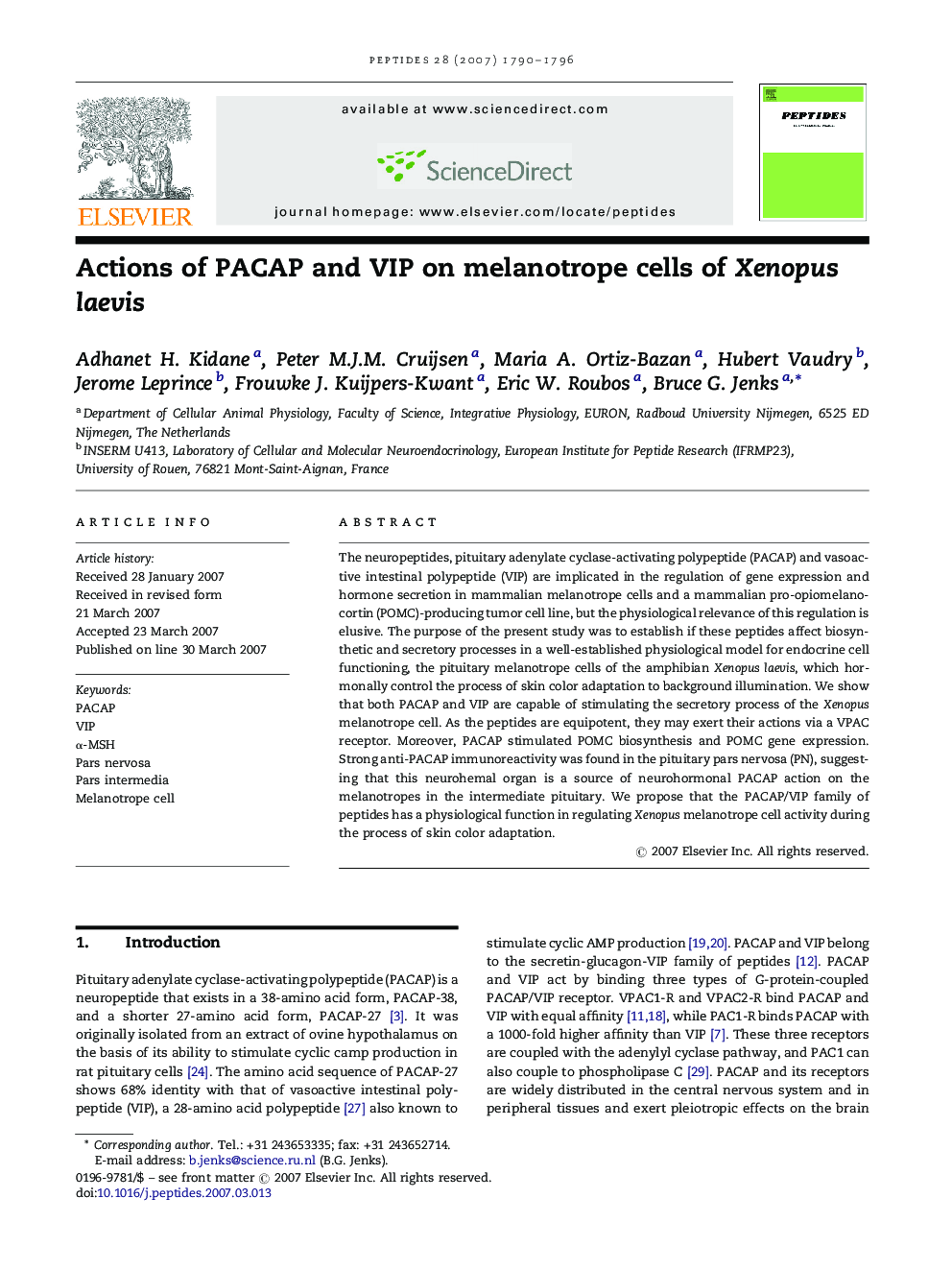| Article ID | Journal | Published Year | Pages | File Type |
|---|---|---|---|---|
| 2008479 | Peptides | 2007 | 7 Pages |
Abstract
The neuropeptides, pituitary adenylate cyclase-activating polypeptide (PACAP) and vasoactive intestinal polypeptide (VIP) are implicated in the regulation of gene expression and hormone secretion in mammalian melanotrope cells and a mammalian pro-opiomelanocortin (POMC)-producing tumor cell line, but the physiological relevance of this regulation is elusive. The purpose of the present study was to establish if these peptides affect biosynthetic and secretory processes in a well-established physiological model for endocrine cell functioning, the pituitary melanotrope cells of the amphibian Xenopus laevis, which hormonally control the process of skin color adaptation to background illumination. We show that both PACAP and VIP are capable of stimulating the secretory process of the Xenopus melanotrope cell. As the peptides are equipotent, they may exert their actions via a VPAC receptor. Moreover, PACAP stimulated POMC biosynthesis and POMC gene expression. Strong anti-PACAP immunoreactivity was found in the pituitary pars nervosa (PN), suggesting that this neurohemal organ is a source of neurohormonal PACAP action on the melanotropes in the intermediate pituitary. We propose that the PACAP/VIP family of peptides has a physiological function in regulating Xenopus melanotrope cell activity during the process of skin color adaptation.
Related Topics
Life Sciences
Biochemistry, Genetics and Molecular Biology
Biochemistry
Authors
Adhanet H. Kidane, Peter M.J.M. Cruijsen, Maria A. Ortiz-Bazan, Hubert Vaudry, Jerome Leprince, Frouwke J. Kuijpers-Kwant, Eric W. Roubos, Bruce G. Jenks,
